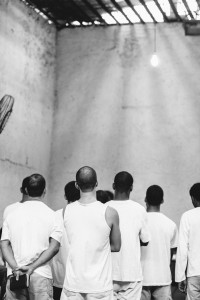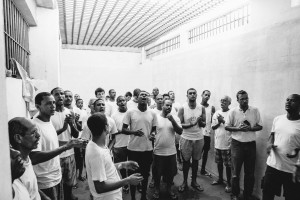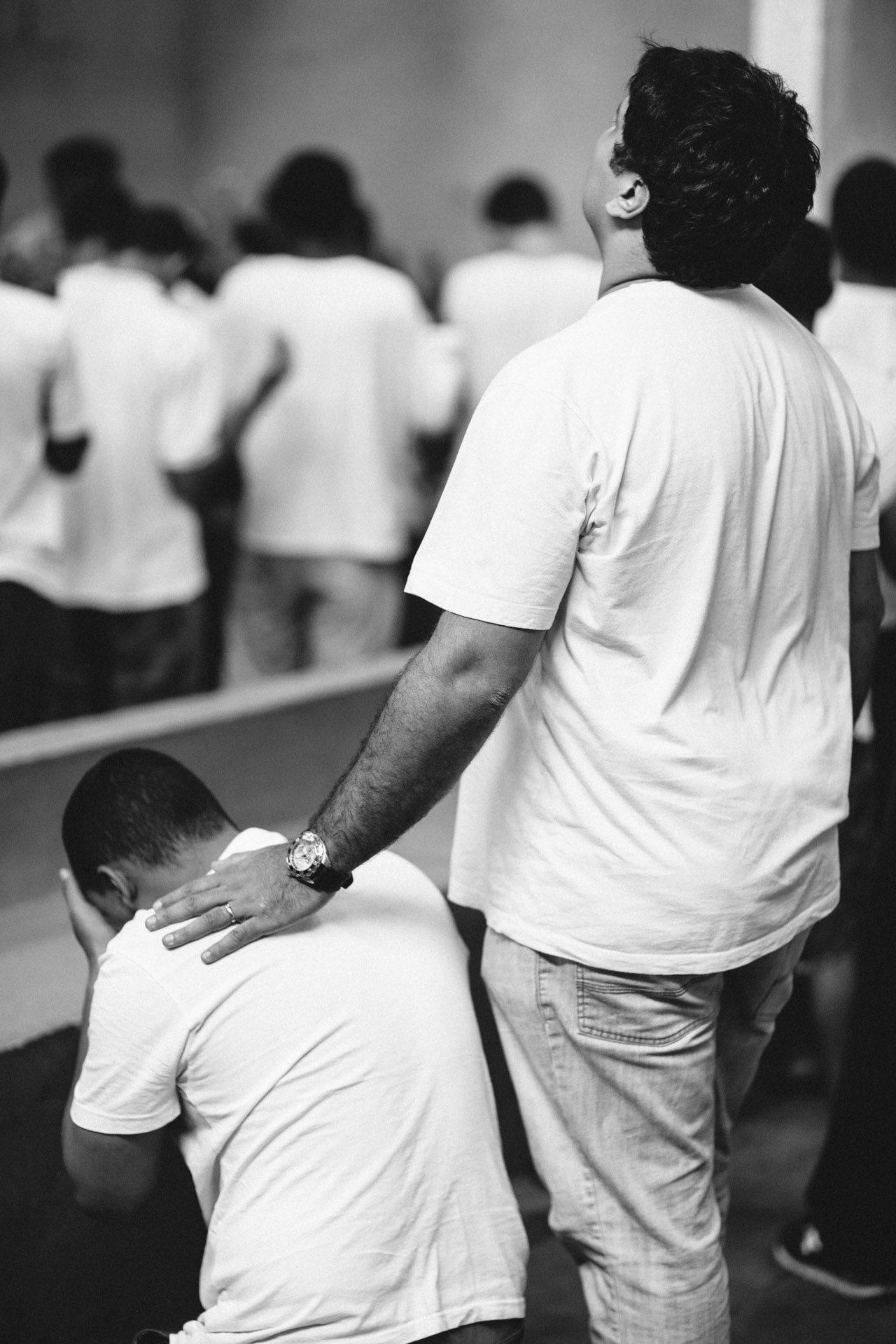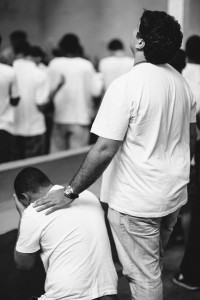 Rio de Janeiro, Brazil is a city of over six million people; it is known for its exotic nightlife, white sand beaches, crystal blue water, and of course, one of the most famous bosa nova songs ever: The Girl From Ipanema. However, beyond the sunny beaches, veritable entertainment, and soothing music lies a very different scene – the Rio de Janeiro prison system. Inside the towering grey concrete walls live Rio’s os serés matáves, or roughly translated into English as, “the killable people”. These “killable people” are comprised mostly of proletariat and unemployed minorities with crimes ranging from the benign to the bloody. Gangs rule the prison and every day at 6 pm deafening war cries echo out from within the concrete walls as prison gangs scream allegiance to their “commander” – the head gang leader who runs the prison. The guards largely remain on the outskirts of the prison, they don’t control much of what happens within, as it is too dangerous to go inside. [Note: While the prison system is, of course, very dangerous, the guards’ absence is also due to the penology practiced in that country.]
Rio de Janeiro, Brazil is a city of over six million people; it is known for its exotic nightlife, white sand beaches, crystal blue water, and of course, one of the most famous bosa nova songs ever: The Girl From Ipanema. However, beyond the sunny beaches, veritable entertainment, and soothing music lies a very different scene – the Rio de Janeiro prison system. Inside the towering grey concrete walls live Rio’s os serés matáves, or roughly translated into English as, “the killable people”. These “killable people” are comprised mostly of proletariat and unemployed minorities with crimes ranging from the benign to the bloody. Gangs rule the prison and every day at 6 pm deafening war cries echo out from within the concrete walls as prison gangs scream allegiance to their “commander” – the head gang leader who runs the prison. The guards largely remain on the outskirts of the prison, they don’t control much of what happens within, as it is too dangerous to go inside. [Note: While the prison system is, of course, very dangerous, the guards’ absence is also due to the penology practiced in that country.]

For Brazil’s “killable people”, there are two prevalent ways to deal with the relative hell of prison – both involving allegiance and devotion. You can give your life to the gang or give your life to God. Only three types of people dare to venture into the heart of a Rio de Janeiro prison: the condemned, the pentecostal pastors leading the prison ministry, and curiously brave sociologists such as Dr. Andrew Johnson.
Podcast: Play in new window | Download | Embed
Subscribe: RSS
In his interview with Thomas J. Coleman III, Dr. Johnson begins by discussing the preparation leading up to his ethnography of the Pentecostal prison ministries in Rio de Janero Brazil. He takes the listener through the streets and slums of Rio, and into a prison cell-block. Here, we learn about the gang life that largely runs the prison, and the “gang like” life (Pentecostal prison ministries) that can provide a temporary escape from the physically and psychologically damaging conditions of the jail, and might just provide eternal redemption through the faith of the pious prisoner. Johnson discusses the role of politics in the prison system, why Pentecostalism dominates the jails in a predominately catholic country such as Brazil, and “answers” the question of how to tell if someone is truly faithful. He discusses how prisoners are viewed by their community after their release, and upon conversion as an allegedly devout pentecostal. In closing, Dr. Johnson speculates about the future of pentecostal prison ministries in Brazil, and argues for “the religious lives of inmates being taken seriously apart from recidivism rates”.
Be sure to check out Dr. Johnson’s plenary address, the world debut of his documentary If I Give My Soul, at the 2014 Society for the Scientific Study of Religion conference in Indianapolis Indiana October 31st – November 2nd. You can register for the conference here: SSSR registration link.
You can also download this interview, and subscribe to receive our weekly podcast, on iTunes. If you enjoyed it, please take a moment to rate us. And remember, you can use our Amazon.co.uk, Amazon.ca, or Amazon.com links to support us at no additional cost when you have a purchase to make.









